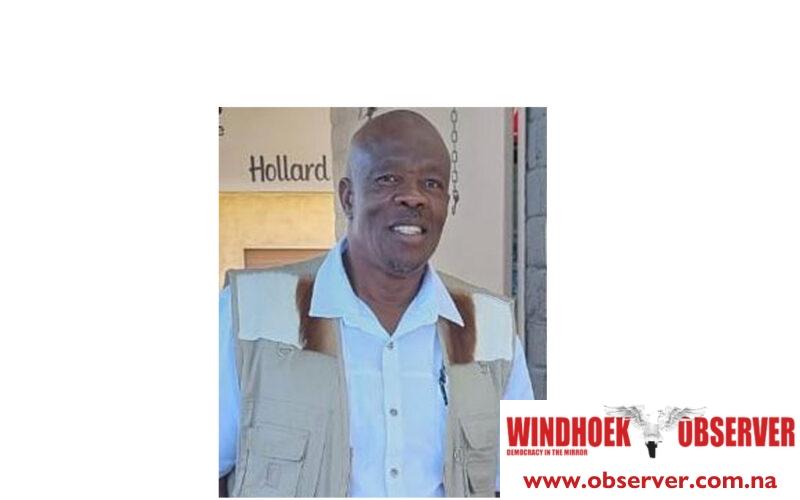Farming requires teamwork and the sharing of expertise as well as mentoring, particularly for the novice farmer. The spirit of Ubuntu is paramount in farming. The importance of farming can neither be overemphasized nor be gainsaid. Around 70% of Namibia’s population depends directly or indirectly on agriculture for their income and livelihood. Consequently, success in farming cannot be left to chance. To that effect, I will utilize this space every Friday to share the imperatives that are pivotal for sustainable and profitable small stock farming. The terms small stock, in the agricultural arena, refer to goats and sheep.
It is imperative that everyone who ventures into small stock farming starts with the end in mind. The aspiring small stock farmer needs to be clear as to why she wants to go into small stock farming. By so doing, the approach to farming will be strategic and focused. Consequently, specific strategies will be employed so as to influence the desired outcomes. The desired outcomes must be overshadowed by sustainability and profitability. An aspiring small stock farmer needs to know and master all the ins and outs of small stock farming. It is of cardinal importance that the commencement of the journey into the intricate domain of small stock farming be preceded by the acquisition of the requisite knowledge and skills. Passion for farming and the love for goats and/or sheep are key driving forces that nurture the right attitude and a positive mindset. Having the right attitude and a positive mindset have a strong intrinsic motivational effect.
For small stock farming to be effective and sustainable, the basics must be in place ab initio and applied meticulously. Surely, the aspiring small stock farmer needs to take an informed decision whether he will farm with goats or sheep or both. Whatever the type of small stock the aspiring farmer elects to farm with, another informed decision needs to be taken on the specific breed(s) of goats and/or sheep that he will farm with and the farming area. As a matter of fact, not all farming areas are suitable for small stock farming. Similarly, not all farming areas are suitable for large frame sheep breeds, such as the Dorper and the Meatmaster. The type and quality of the grazing (pasture) are primary considerations when deciding on the farming area and the type as well as the breed(s) of small stock to farm with.
Prior to the acquisition or procurement of livestock, the aspiring farmer needs to cater for the requisite infrastructure. Mindful of the multiplicity of needs vis-à-vis the scarcity of resources, the aspiring small stock farmer needs to cater for adequate camps, kraals and small pens as the realities on the ground dictate. Kraals must be as spacious as possible so as to foster a hygienic environment. Water supply and water supply infrastructure are critical inputs towards successful and sustainable farming.
Quality and quantity of livestock are primary considerations that inform the livestock sourcing strategy of the aspiring farmer. The quantity of small stock that the aspiring farmer elects to keep remains her prerogative. However, quantity must at all times be pegged on superior quality. Superior quality enhances the marketability of and the demand for such livestock. Modern farming is diametrically opposed to subsistence farming and it is in a state of flux with ever increasing demands. As a matter, of fact, not all farmers can be stud breeders. Yet, all farmers must embrace superior quality when sourcing livestock for farming. In most cases, livestock of superior quality attract competitive prices. The ewes may be commercial, but the rams must be stud.
Armed with the requisite knowledge and skills as well as passion for farming, the successful farmer is coerced to embrace the best animal husbandry practices, and develop and implement a small stock hygiene and welfare program. Climatic changes often characterized by poor rainfall and the concomitant severe droughts compel the farmer to have a sizeable budget for the supplementation and feeding of livestock. The sparing use of resources and the elimination of wastages are critical ingredients towards the availability of a sizeable budget. Water leakages (i.e. leaking reservoirs, leaking troughs and leaking water pipes) contribute considerably to wastages.
In a nutshell, the farmer needs to employ a plethora of strategic imperatives that will drive sustainable and profitable farming. These strategic imperatives will be dissected and dealt with separately, yet seriatim, in subsequent articles. At the end of this series of articles, small stock farmers should, inter alia, be able to develop and implement a mating and lambing/kidding program for small stock; minimize, if not eliminate, casualties or fatalities during and after lambing/kidding; embrace best practices in respect of small stock hygiene and welfare; know when and where to market small stock for best prices; appreciate and create genetic value in small stock farming; reduce, if not eliminate, fatalities during severe droughts; and manage small stock farming commercially and sustainably.
Nichlas Mbingeneeko is a renowned small stock farmer and a stud breeder of repute. His stud known as Skuilhoek Stud, in Aranos district, Hardap Region, consists of the Boer Goat, Damara Sheep and the Veldmaster Sheep. Nichlas Mbingeneeko wrote this article in his personal capacity.




